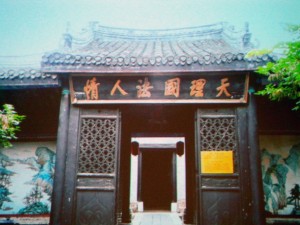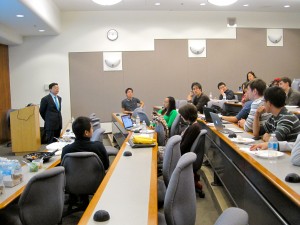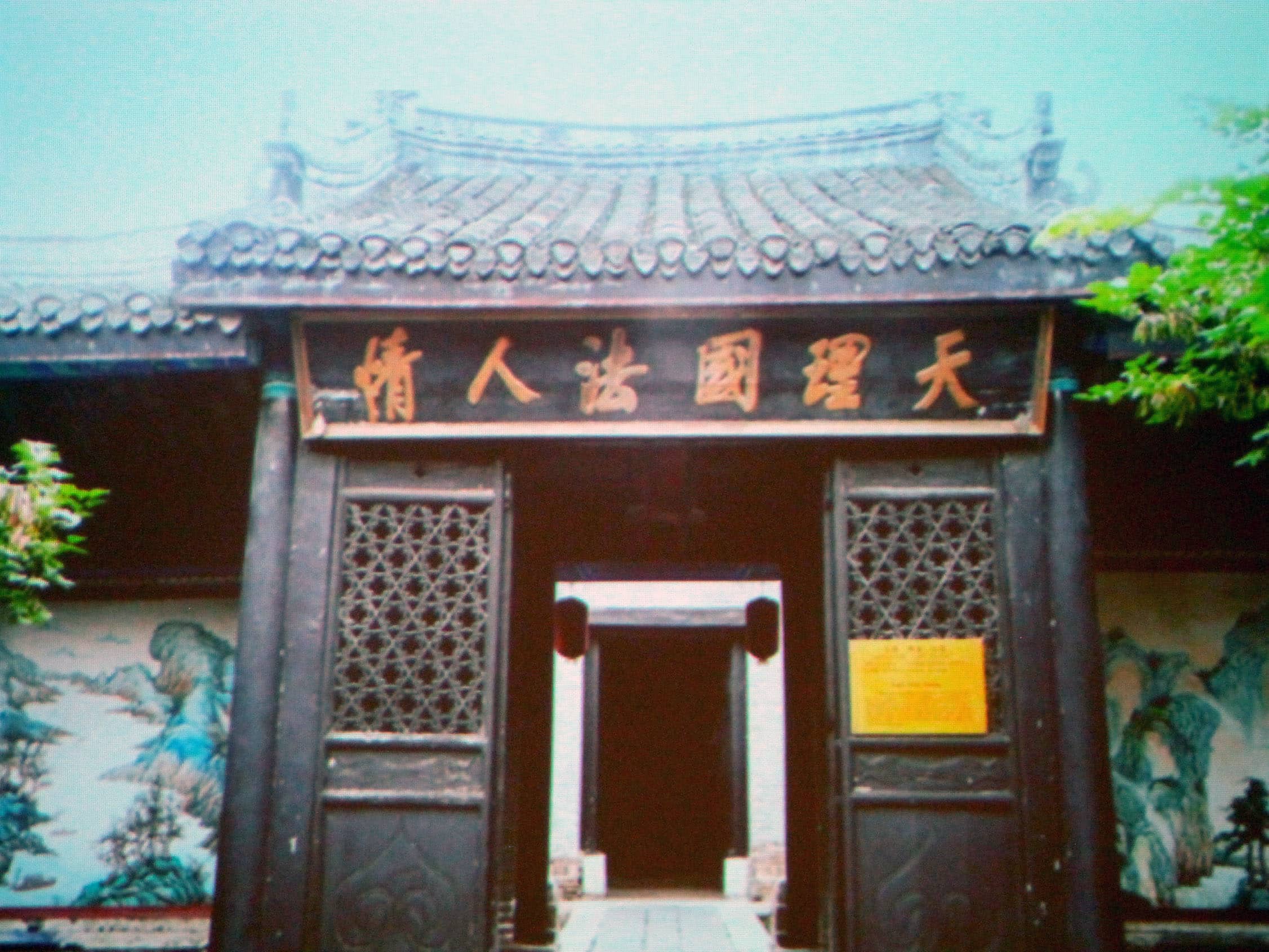
On Wednesday October 10, 2012, the Asia Law Society was honoured to have Professor Zhenmin Wang to speak on the exciting and significant changes in the legal system of China. Professor Wang is the Dean of Law at Tsinghua University in Beijing, one of the top law schools in the country. He also teaches an intensive course, “Introduction to the Legal System of PRC”, at the University of Toronto and spearheads the exchange program for Toronto law students to study at Tsinghua.
Professor Wang began his speech with a humorous comment about studying the bible and eating. A prisoner asked a priest if he could eat when studying the bible. The priest said no because bible study is a serious matter and eating would distract the study. Then, the prisoner changed the question and asked if he could study the bible when eating. The priest answered, certainly because that shows one has the bible in mind even when eating.
Professor Wang then turned to the history of legal systems in China. He discussed the unique features of the ancient Chinese legal system, which emphasizes criminal law, a way for the ruler rule its subjects. In the dynastic times, rites, “Li”, was more important than law. The professor holds that ancient legal traditions, including the Confucian tradition of providing general guidelines of goodness as opposed specific laws, have had lasting effects on the ongoing development of the Chinese legal system.

Professor Wang summarized the more recent changes in the Chinese legal system as from “nothing”, (i.e. the complete lack of a legal system during the Mao era), to “something”; and, if the law continues to develop at its current pace, perhaps one day “everything”. Thanks to China’s economic development, the commercial law in China is far more developed than other aspects of the legal system. Professor Wang argued that China is a socialist not a communist or capitalist country contrary to some popular or academic opinions.
In response to a student question on what Canadian law students and young lawyers could do with this knowledge of and interests in legal changes in China, Professor Wang referred to Professor Betty Mayfoon Ho (1948-2010). Professor Ho obtained her L.L.B. from the University of Toronto in 1977. Turning down a lucrative career in the private sector, Professor Ho began teaching in the University of Hong Kong in 1988 and Tsinghua University Law School in 2002. As a pioneer in her field, Professor Ho was heavily involved with the development of the rule of law in China. Professor Wang encouraged the students to take advantage of the exchange opportunities in China and practice or teach in China if it is where their passions lead.






